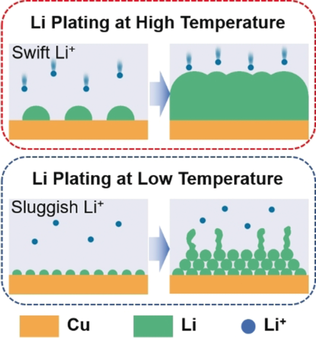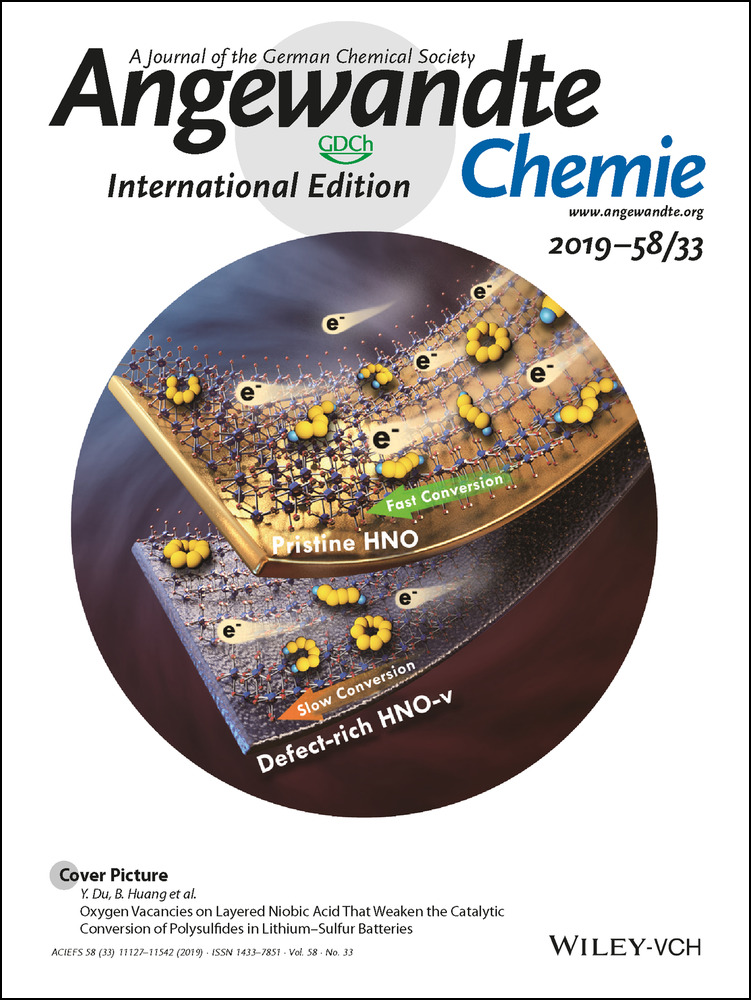Temperature-Dependent Nucleation and Growth of Dendrite-Free Lithium Metal Anodes
Graphical Abstract
Electrode plating: Strong lithiophilicity and fast lithium-ion migration at elevated temperature facilitate the formation of large and sparse Li nuclei, thus contributing to a compact and smooth Li deposition layer on anodes. Thus dendrite-free Li metal anodes with excellent electrochemical performances were achieved for metal-based batteries.
Abstract
It is essential to develop a facile and effective method to enhance the electrochemical performance of lithium metal anodes for building high-energy-density Li-metal based batteries. Herein, we explored the temperature-dependent Li nucleation and growth behavior and constructed a dendrite-free Li metal anode by elevating temperature from room temperature (20 °C) to 60 °C. A series of ex situ and in situ microscopy investigations demonstrate that increasing Li deposition temperature results in large nuclei size, low nucleation density, and compact growth of Li metal. We reveal that the enhanced lithiophilicity and the increased Li-ion diffusion coefficient in aprotic electrolytes at high temperature are essential factors contributing to the dendrite-free Li growth behavior. As anodes in both half cells and full cells, the compact deposited Li with minimized specific surface area delivered high Coulombic efficiencies and long cycling stability at 60 °C.





